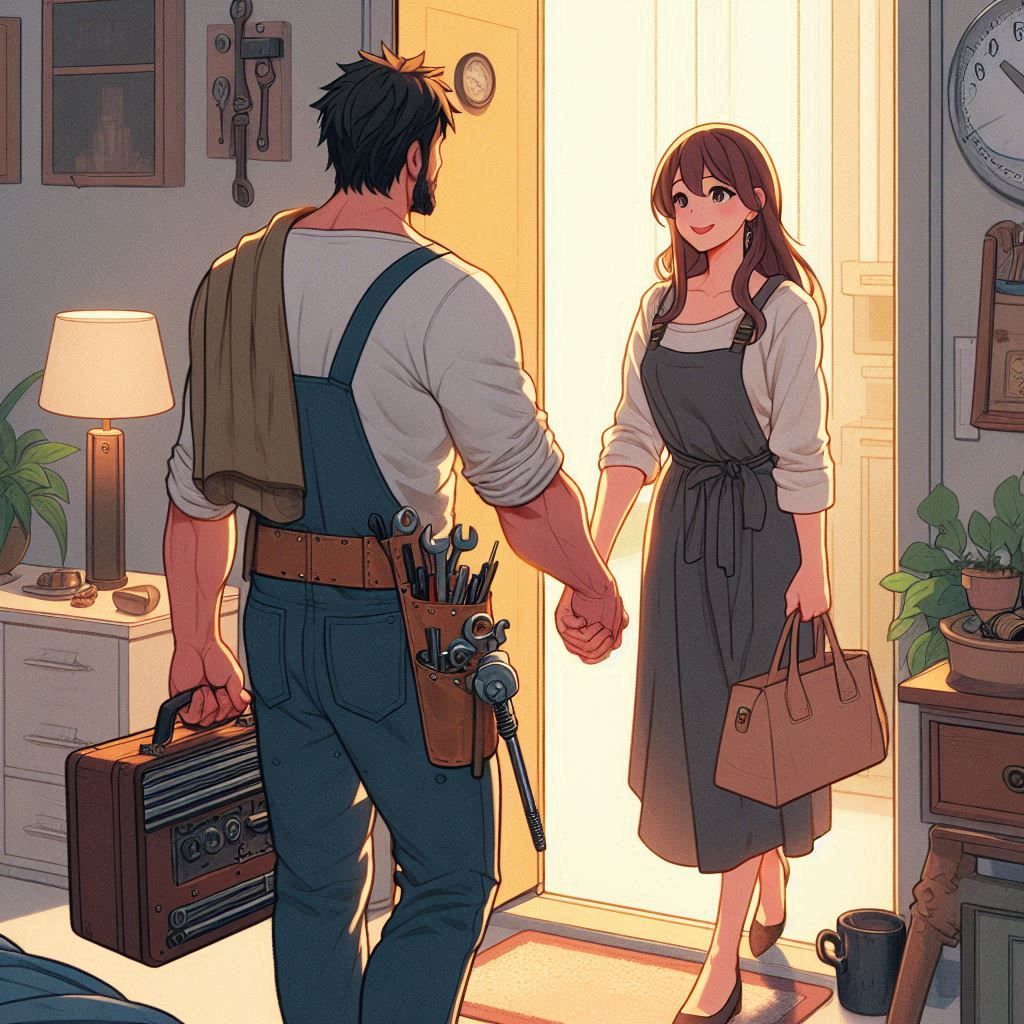What were your parents doing at your age?

When I think about my parents and what they were doing at my age, I’m struck by how different their lives were from mine—and yet, how much I can learn from the way they navigated their roles, responsibilities, and relationship. Their story is a testament to the beauty of partnership, even in the absence of what we might now call “equality.” It’s a story of balance, mutual respect, and an unspoken understanding that sometimes, life is about giving a little more so that the other can thrive.
My father was a self-made man, a toolmaker by trade. By the time he was my age, he was already working for himself, repairing valves and running his own small business. He had a factory—a rented space in a huge warehouse filled with his equipment and machinery. It wasn’t glamorous, but it was his. He took pride in his work, in providing for his family, and in the independence that came with being his own boss. His days were long, and his hands were often stained with grease, but he never complained. For him, his role was clear: he was the provider, the one who ensured there was food on the table and a roof over their heads.
My mother, on the other hand, was at home. Her world revolved around making sure my father had everything he needed to succeed in his role. She cooked, cleaned, and managed the household, ensuring that he returned each day to a warm meal and a tidy home. Her work was never-ending, but she approached it with the same dedication and pride that my father brought to his factory. She saw her role as just as vital as his—not because society told her it was, but because she understood that their partnership was a delicate balance. She was the caretaker, the one who created the stability and comfort that allowed him to focus on his work.
At first glance, their dynamic might seem outdated by today’s standards. There was no discussion of equality, no splitting of chores or debates about who should do what. My father had his role, and my mother had hers. But what’s remarkable is that neither of them saw their roles as diminishing the other. They didn’t keep score or resent the other for what they did or didn’t do. Instead, they lived in a kind of harmony—a give-and-take that acknowledged the ebb and flow of life.
There were times when my father had to work late into the night, leaving my mother to manage everything on her own. And there were times when my mother needed extra support, and my father stepped up without hesitation. They understood that life isn’t always fair or balanced, and that sometimes, one person has to carry a little more weight so that the other can catch their breath. But over time, they knew, these things evened out.
Their relationship wasn’t perfect, but it was rooted in mutual respect and a deep understanding of each other’s value. They didn’t need to prove who was more important because they both knew they were essential to the life they had built together. It was a partnership in the truest sense—one where they celebrated each other’s contributions and didn’t let pride or ego get in the way of their shared goals.
As I reflect on their lives at my age, I can’t help but admire the simplicity and depth of their connection. They didn’t have the language of modern relationships or the frameworks we use today to define equality and partnership. But they had something perhaps even more powerful: an unshakable commitment to each other and a willingness to give and take without keeping score.
In a world that often feels obsessed with fairness and balance, their story reminds me that sometimes, the most important thing isn’t who does what, but how much we’re willing to give—and how deeply we appreciate what the other brings to the table.
What were my parents doing at my age? They were building a life together, one valve repair and one home-cooked meal at a time. And in doing so, they taught me that true harmony isn’t about equality—it’s about love, respect, and the willingness to carry each other when the load gets heavy.

I don’t know about back then, but nowadays there’s a lot of pressure from society of how life is “supposed” to be and what we’re “supposed” to be doing. Your parents were able to be who they were in the context of their marriage. It’s a lovely tribute to your parents.
Thank you for your comment.